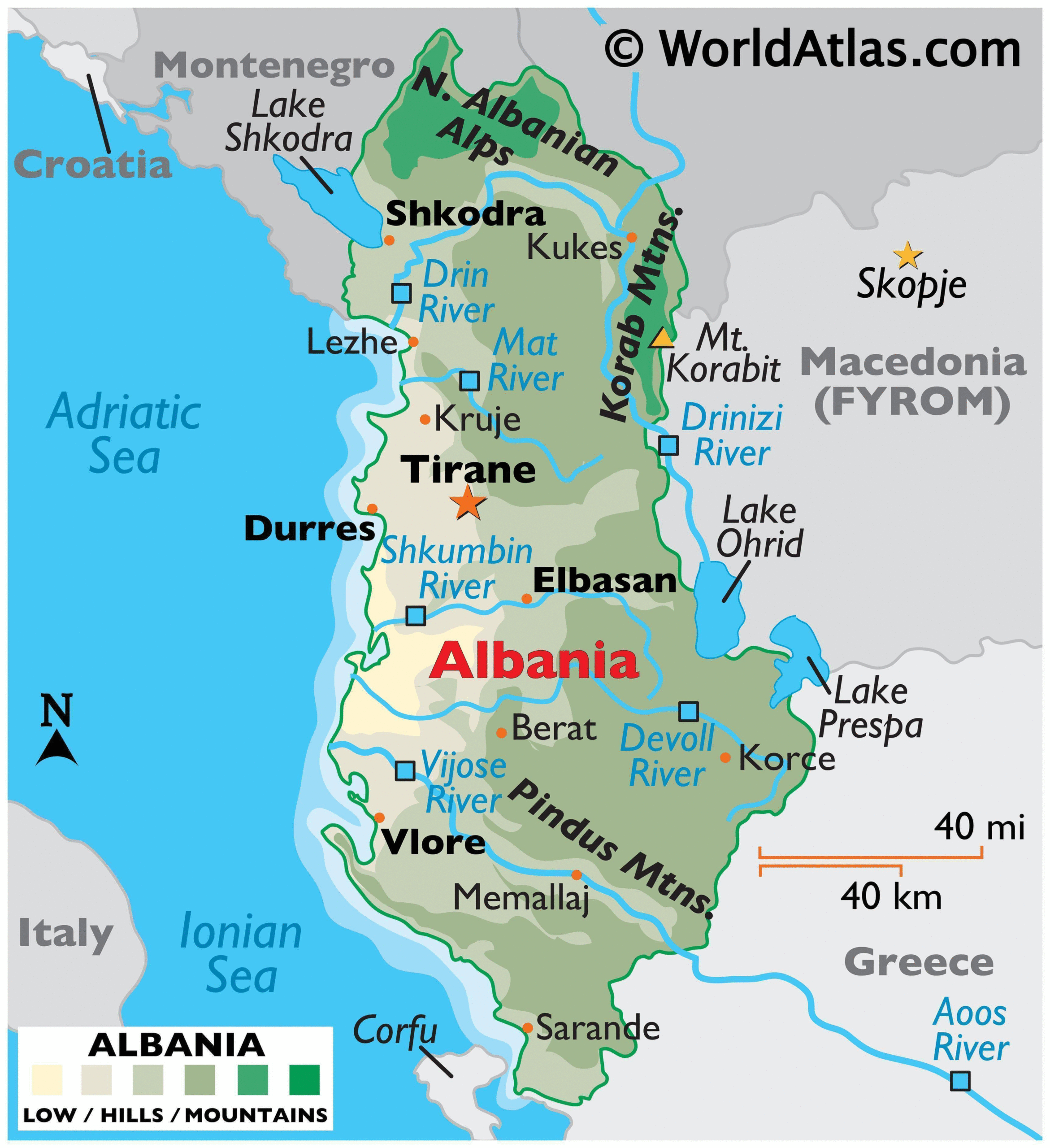Albania, a small yet intriguing country located in the Balkans of Southeast Europe, possesses a rich tapestry of history and culture that warrants a closer examination. As a nation with a unique geographic and historical significance, Albania stands out not only for its stunning landscapes and vibrant traditions but also for its complex relationship with Christianity and its historical evolution. This article seeks to provide a comprehensive exploration of Albania’s geographical position, its historical context, and the Christian perspective that colors its narrative.
Geographically, Albania is nestled on the Adriatic and Ionian Seas, bordered by Montenegro to the northwest, Kosovo to the northeast, North Macedonia to the east, and Greece to the south. Its strategic location has historically rendered it a crossroads of civilizations, influencing its sociopolitical landscape. The rugged Albanian Alps to the north and the picturesque beaches along its southern coast showcase the country’s natural beauty, attracting visitors from around the world. The capital, Tirana, serves as both the political and cultural heart of the nation, where modernity meets tradition in a vibrant urban setting.
Albania’s history is marked by a succession of invasions and occupations that have profoundly influenced its cultural and religious fabric. The Illyrians, the earliest known inhabitants, laid the foundation for a distinct national identity. However, it was during the Roman Empire that Albania began to emerge as a significant territory in the region, marked by the establishment of cities and trade routes. The advent of Christianity in the region can be traced back to this era, with the Apostle Paul reportedly preaching in the Balkans.
As time progressed, Albania became a part of the Byzantine Empire, and by the 14th century, Ottoman control had begun to take hold. This period proved pivotal for the nation, as the majority of Albanians converted to Islam, influenced by the Ottomans’ policies and the socio-economic incentives they offered. However, pockets of Christian communities persisted, particularly in the north, where the Catholic Church maintained a strong presence. This duality of faiths would later play a significant role in shaping the national consciousness and identity of Albanians.
The emergence of Albania as a national entity came to fruition in the 20th century, amidst the backdrop of World War I and the subsequent declaration of independence in 1912. Christianity in Albania underwent a resurrection during this period, as national identity and religious faith became intertwined. Notably, the Albanian Orthodox Church and the Catholic Church regained prominence, signaling a renewed interest in religious traditions and the country’s historical roots.
The interwar period marked a time of cultural nationalism, as intellectuals and leaders sought to unify the country’s diverse population under a shared identity. With the rise of communism after World War II, Albania witnessed a drastic shift. The communist regime proclaimed state atheism, aggressively suppressing religious practices and promoting a secular state. Churches were closed, and religious leaders were persecuted, leading to a significant decline in adherence to Christian faith.
Yet, the resilience of the Albanian people is noteworthy. Even in the face of oppression, many silently practiced their faith, clinging to their spiritual practices as a means of preserving identity and heritage. The fall of communism in the early 1990s brought a revitalization of religious life. Churches and mosques reopened, and a sense of religious freedom blossomed, albeit amid a complex interplay of various faiths including Islam, Orthodoxy, and Catholicism.
Today, Albania is often described as a model of religious tolerance. This is especially striking when compared to the sectarian conflicts that have plagued the Balkan region. In dialogues surrounding faith, Albanians emphasize their long-standing tradition of coexistence, where hillsides are adorned with minarets and steeples alike. This religious plurality underscores a theme found in Christian doctrine — the emphasis on love, acceptance, and community.
From a Christian perspective, Albania’s multifaceted history and its journey towards reconciliation and acceptance create a fascinating narrative. The country’s Christian heritage, while complicated, serves as a foundation for deeper spiritual reflections. The commitment to fostering peace among diverse religious communities is emblematic of the transformative power of faith. Albania’s history encourages a contemplation of grace, forgiveness, and the pursuit of unity among believers, irrespective of denominational affiliation.
The beauty of Albania transcends its picturesque landscapes. It lies in the perseverance of its people, the preservation of their values, and their ability to rise from the ashes of hardship. In contemporary society, as Albania moves further into the global discourse, its Christian roots serve as a guide, offering not only a historical narrative but also a moral compass in a world often grappling with divisions.
In conclusion, Albania offers a unique perspective within the European context, steeped in a rich historical legacy and a diverse tapestry of faith. From its geographical positioning as a bridge between East and West to its complex narrative of religious transformation, Albania’s story is one of resilience and reconciliation. As it navigates the challenges of modernity, Albania stands as a testament to the enduring power of faith in shaping national identity and fostering a spirit of unity among its people.



